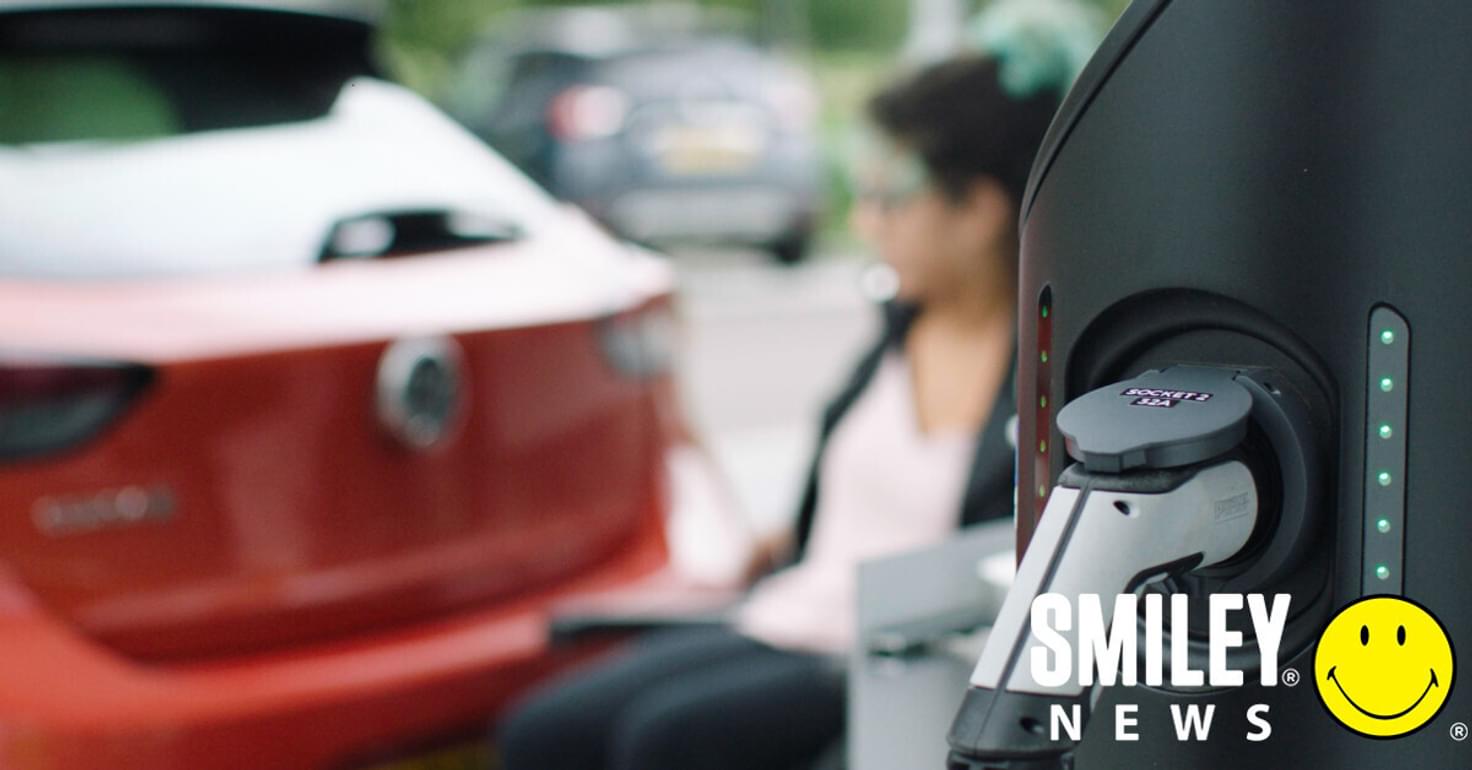
Words by Smiley Team
The UK Government is partnering with charities to establish accessibility standards for electric vehicle [EV] charging points, as the country continues its push towards carbon neutrality.
Providing industry guidance and creating definitions for drivers, the British Standards Institute will set out the criteria, applying labels of ‘fully accessible’, ‘partially accessible’ or ‘not accessible’.
Working with charity Motability and the Office for Zero Emission Vehicles, the Institute will consult key stakeholders, including innovators, charging point operators and disability charities.
Gill Nowell, Director of the Electric Vehicles Association England welcomed the announcement: “We need to ensure that charging infrastructure is designed with disabled drivers in mind, and that it is accessible, reliable and meets drivers’ needs.
“We look forward to supporting wherever we can in this important and far-reaching piece of work.”
As part of the UK’s transition towards carbon neutrality, sales of new petrol or diesel fuelled cars are being halted after 2030, followed up with a ban on selling hybrid vehicles from 2035.
The number of cars powered entirely by electricity in the UK has increased over the past decade, with car insurance dealer RAC estimating that, as of April 2021, there were 239,000 on the roads.
Drivers can have private charging points fitted to their homes, provided they have off-street parking space, but public charging points are increasingly available in garages and on the streets.
According to EDF Energy, there are now more than 35,000 charging point connectors, spanning 13,000 public locations across the country.
“With sales of EVs increasing and the government’s net zero ambitions accelerating, I want to make it as easy as possible for EV drivers to charge up their vehicles at public chargepoints right across the UK, regardless of their mobility,” said Transport Minister Rachel Maclean.
“We are taking action to provide accessibility guidance to both operators and drivers to make sure that the transition to zero-emission driving will benefit everyone in society as we build back better.”
Minister for Disabled People Justin Tomlinson echoed this, emphasising that the “government is ensuring disabled people are at the heart of our plans” and adding that “it is imperative that disabled people have the same opportunities” to access the charging points.
Throughout August, Motability, in conjunction with charity Designability, is hosting a series of workshops with a focus on accessibility and vehicle charging.
The charities are encouraging interested stakeholders to come forwards and share their views, which will inform the criteria behind these new standards.
“There is a risk that disabled people are left behind as the UK’s transition to electric vehicles approaches and Motability wants to ensure that this does not happen,” said Barry Le Grys MBE, Chief Executive Officer at Motability.
Designabilty is currently running a variety of focus groups and interviews which, combined with observational research, will help identify “key barriers for disabled people in accessing existing EV chargers”.
Over 1,000 disabled drivers have so far volunteered feedback, which will be taken on board going forward into the design phase.
“We’re excited to be working on this project which will help to set the standard for EV charging points, addressing the barriers to use which to this point have not been considered,” said Catharine Brown, Chief Executive Officer at Designability.
She explained that the charity will “develop user-friendly design proposals” and will “also be developing prototypes”, bringing the new concepts to life and contributing towards a Publicly Accessible Standard.
Charities working with disabled people or individuals with long-term health conditions who would like to participate are urged to get in touch by emailing [email protected].

This work is licensed under a Creative Commons Attribution-NonCommercial-NoDerivatives 4.0 International License